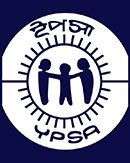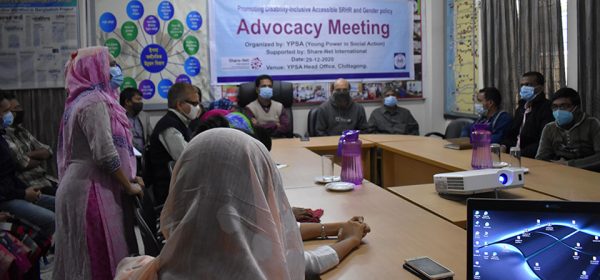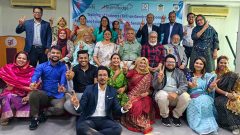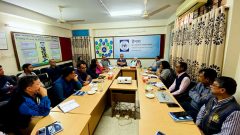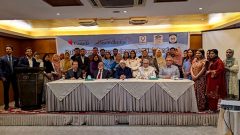“Human being is the superior amongst all the life forms on earth, and have the most complicated and delicate reproductive mechanism. In order to procreate or lead a healthy life, we need to keep ourselves informed on the different issues of sexual and reproductive health. And, it is our right to get this information, support and services in formats that work for us irrespective of age, gender, disability and so on”, said Md Manzur Murshed Chowdhury, Director (Economic Development) of YPSA at the 1st advocacy meeting held on 29th December 2020 at YPSA head office under the project “Introduce and Promote Disability-Inclusive Accessible SRHR for All” supported by Share-Net International, Netherlands.
Considering the current condition of the SRHR sector in Bangladesh in light of disability inclusion and accessibility, YPSA has designed this project to introduce and promote Disability Inclusive Accessible SRHR, Health, and Gender Policy for all, and under this project, 2 advocacy meetings were held on 29th and 31st December 2020 at YPSA conference room at Chattagram. Most of the meeting participants were persons with disabilities, representatives of the organizations of persons with disabilities, SRHR experts, and disability rights activists. Both of these meetings were conducted by following standard health rules keeping in mind the COVID 19 pandemic.
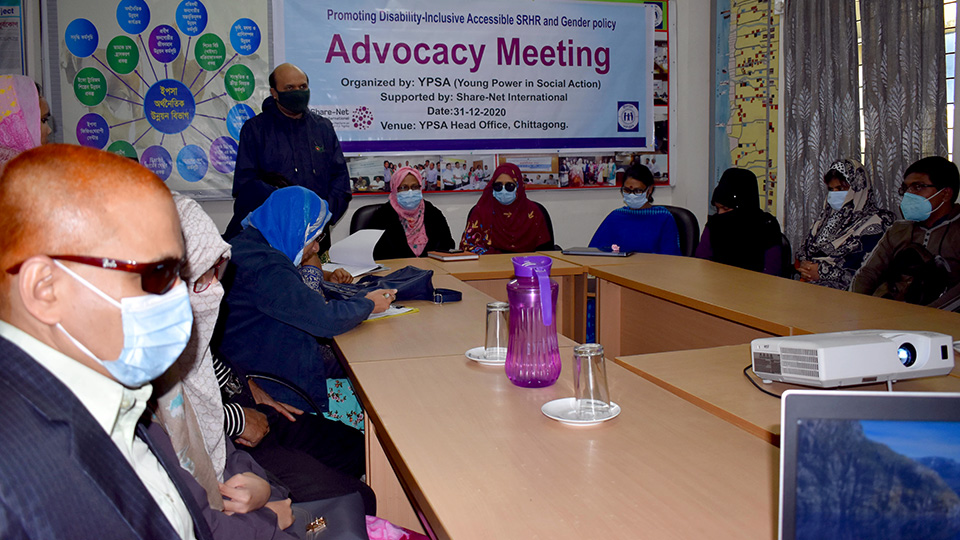
In these events, persons with disabilities shared their experiences on different SRHR issues; emphasized that they do not want to remain in the dark regarding sexual and reproductive health rights (SRHR), and thanked YPSA for taking such an initiative. Almost all the participants talking point was same. They all unanimously agreed that comprehensive education, information, and training on sexual and reproductive health is the most critical element of sexual and reproductive health rights (SRHR). In Bangladesh, persons with disabilities consider information on sexual and reproductive health not just as a need, but as their right. Despite being a right, persons with disabilities often do not have equal access to information, education, and training related to sexual and reproductive health, sexuality, relationship as well as general health, thus hampering their ability to make informed decisions about these issues. These individuals often face discrimination because of their impairments and gender. Although the government and a few other organizations have taken a few scattered initiatives in this regard but those were not dedicated to Persons with disabilities. As a result, in this sector, the situation remained unchanged for persons with disabilities.
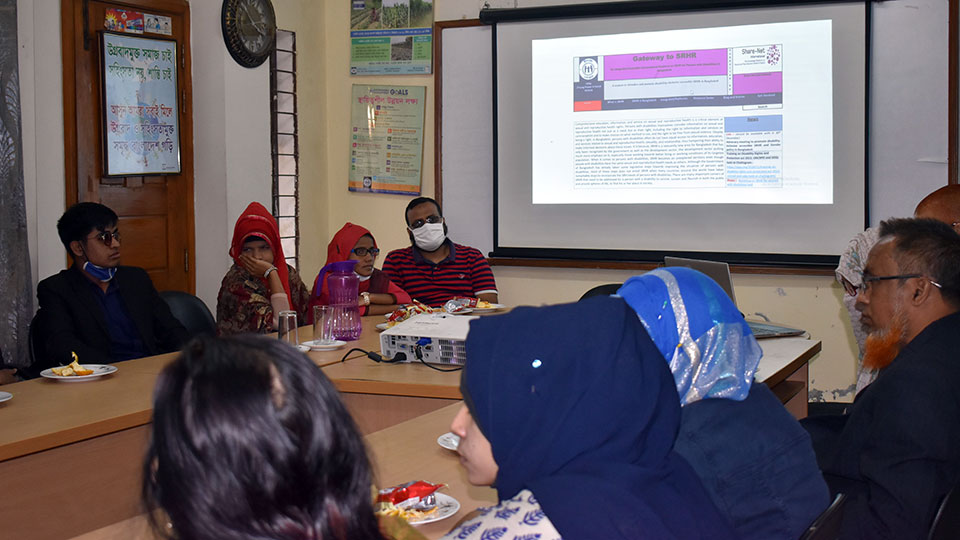
Among many others, UNESCO award-winning disability rights activist and YPSA-IRCD focal person Vashkar Bhattacharjee, disability and women rights activist Sadia Tazin, Jahan Ara Hena, Safia Khatun, SRHR expert Sanjida Akter, Accessibility expert Rashedujjaman Chowdhury were present at the meetings. The findings, framework, and recommendations of the newly developed guideline as well as briefing on the integrated website was shared by YPSA’s research and documentation officer Shahriar MD Shiblee.
